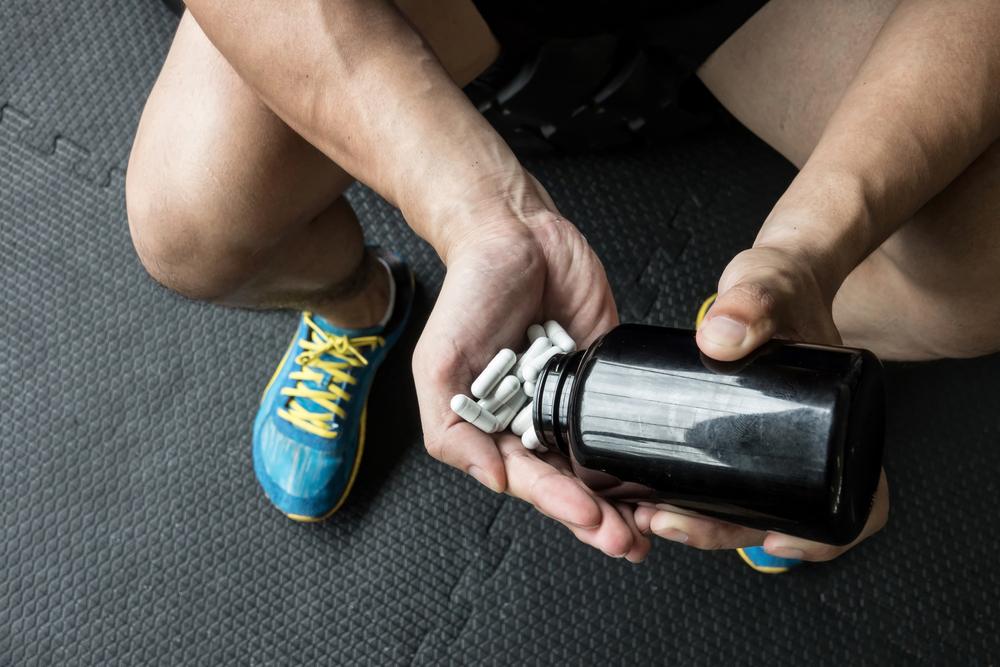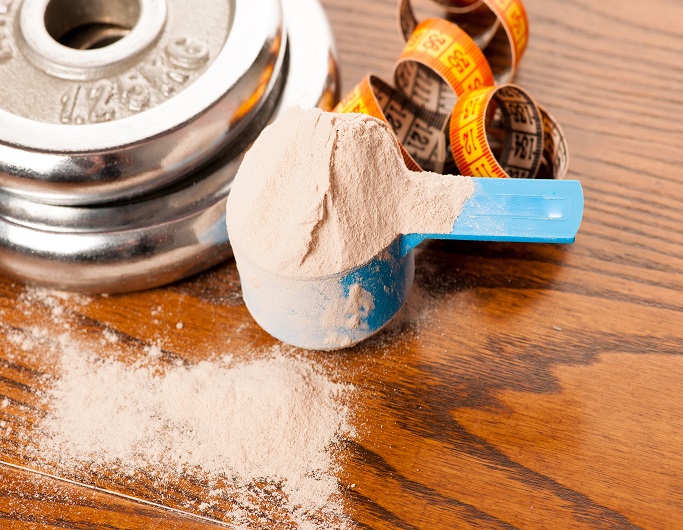
Make The Perfect Protein Shake
Making the perfect shake depends on a number of factors such as training goals and what time of the day you’re taking it. Here we look at the different protein shakes you can make and the individual ingredients in them so you can decide which one best suits you and your training routine.
The Perfect Post-Workout Shake
- 40 grams whey protein powder
- 60g dextrose/ maltodextrin
- 3g of leucine
- 1.5g HMB
Firstly regarding the protein in your shake, research shows after a hard strength based training session your body and muscles are starved and so have a ‘sponge-like’ property that sports scientists believe is why you can absorb more protein at this point compared to any other time of the day (R.R. Wolfe et al, 1995.) For this reason it makes sense to increase your protein intake post workout and add a larger 40 gram dose of whey protein since this will serve as a great basis for your shake and will greatly help to kick-start the recovery process.
Next put a massive 60g serving of a 100+ glycaemic index carbohydrates in your shake (like dextrose, maltodextrin or even waxy maize starch) since this will increase insulin levels in the body which in turn increases the absorption of protein and the other ingredients in your shake (John Ivy, Robert Portman, 2004.)
Then perhaps a less well known ingredient, try adding a small tea spoon (3 grams) of the essential amino acid leucine because studies show post workout the higher leucine levels in your bloodstream, the higher the rate of protein synthesis in your muscles (Isabelle Rieu et al, 2006.) In fact leucine is so valuable post workout that experts have shown it actually helps all the other nutrients in your shake absorb into the body better.
Lastly try adding a small amount of HMB (Beta-hydroxy beta-methylbutyrate) since research shows adding as little as 1.5 grams can help reduce muscle soreness post workout meaning you’re able to train the very next day without any aches and pains.
The Perfect Pre-Workout Shake
- 25-35g whey protein powder
- 5g Essential Amino Acids
- 60g oats
- 200mg caffeine
- 2g beta alanine
- 5g creatine
As with most shakes it’s important to include a good source of protein since this is integral to creating a positive nitrogen balance in the body that’s necessary to stimulate maximum protein synthesis and increase muscle mass. But more specifically research at the Medical Branch at the University of Texas found that protein synthesis was increased when essential amino acids and whey protein were taken ‘immediately before resistance exercise’ (K. Tipton et al 2001). For this reason try including 25-35 grams of whey protein and 5 grams of Essential Amino Acids to serve as the basis for your pre workout shake.
Most obviously you’ll next need a quality source of carbohydrates to fuel your training session since a study at the Exercise Physiology Laboratory at Ohio State University in Columbus concluded that 1 hour before training, taking between 1.1 and 1.5 grams of liquid carbohydrate per kg of body mass dramatically improved performance in elite athletes (WM Sherman et al 1991.) Ideally these should be Low GI carbs like oats just to make sure your body is slowly energized throughout the workout since a high GI carb would cause your blood sugar levels to go up and down which would in fact cause you to feel dizzy and weak. So try adding 60 grams of oats to your pre workout shake.
Next something a little different to macronutrients, researchers at Yale University discovered that 200 milligrams of caffeine taken before a workout could increase ‘strength-endurance.’ It did this by stimulating the production of the neuro transmitter beta-endorphin which in turn reduces peoples perception to pain and fatigue, meaning you continue to train harder for longer.
Next a slightly less well known supplement, try adding 2 grams of the non-essential amino acid beta alanine in your shake, since experts have shown it can improve muscular endurance by buffering lactic acid in the muscles which therefore reduces the onset of fatigue.
Next and perhaps most obviously, add 5 grams of Creatine Monohydrate to the shake since hundreds of studies show it can help improve power, strength, muscle growth and reduce recovery time between intense bouts of exercise. More specifically, a study conducted at the Exercise & Sport Sciences Laboratory at The University of Memphis discovered that creatine supplementation pre workout increased muscle mass, lifting volume and spring performance in well-trained collegiate football players.
The Perfect Night Time Shake
- 30 grams Casein protein
- 2g L- Arginine
- 2g L- Lysine
- 5g Glutamine
- 1g HMB
The lastly shake is equally very important since the period when you’re sleeping can either be productive or counterproductive to your training depending on your pre bed time nutrition. Because although you’re asleep and resting, you’re also not eating, so what you eat beforehand needs to keep your body slowly fed throughout the night. That’s why many sports nutrition experts recommend 30 grams of casein protein since in a study conducted at the Laboratoire de Nutrition Humaine at the University of Auvergne it was stated dietary amino acid absorption is slower in casein than in whey protein. (Yves Boirie et al, 1997.)
Next the extra growth hormone your body produces when sleeping is largely responsible for the quality of your rest and recuperation. To get more of it, a study conducted at the University of Rome discovered that ‘1200 mg of l-lysine plus 1200 mg of l-Arginine’ (two essential amino acids) stimulated the release of more growth hormone, so it might be a good idea to drop 2 grams of each in your pre-bed shake.
Also during deep sleep, your body releases potent immune-enhancing substances that strengthen your immune system. But research at the Conway Institute for Biomolecular and Biomedical Research at the University College of Dublin found the immune boosting properties of glutamine were so impressive, it was used to treat patients with inflammatory conditions such as infection and injury. Therefore putting 5 grams in your shake to support an already healthy immune system could have huge benefits for those with rigorous training schedules.
Then lastly HMB (beta-Hydroxy-beta-Methylbutyrate) is an amino acid that has been proven to delay the breakdown of muscle protein, promote tissue growth and strengthen the immune system. But more importantly for when you’re sleeping, research at the School of Life and Health Sciences at Aston University in Birmingham found that HMB greatly decreased protein degradation. So try adding as little as 1 gram to your bed time shake to help prevent any catabolism of your muscles when sleeping.






No Comments yet!